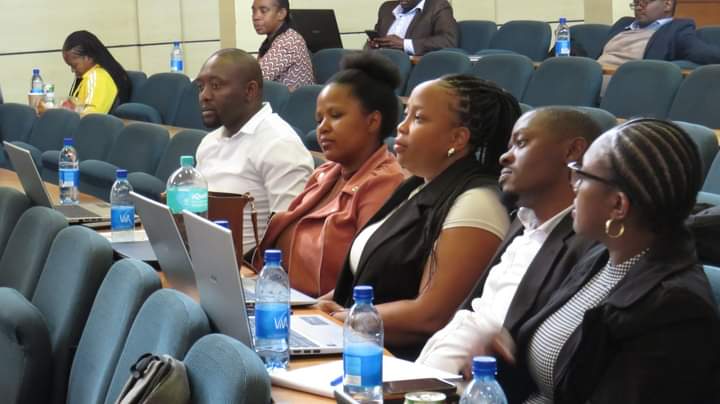By Delisa Thwala
In preparation for the launch of the Integrated Financial Management Information System (IFMIS) Phase 1 this month the Government has undertaken training of the Sectoral Officer.
Sectoral officers from Government central agencies were trained on Wednesday for the Integrated Financial Management Information System (IFMIS) in preparation for the upcoming launch of Phase 1 of the system.
This phase will focus on the Chart of Accounts, Planning, and Budgeting processes.
Last month, the Minister of Finance Neal Rijkenberg announced the first phase of the newly developed Umsebe Integrated Financial Management Information System (IFMIS) is set to go live this month.
RELATED: Ministry grants teachers’ permission to attend 2024 World Teachers’ Day celebration
This was Rijkenberg, during the IFMIS extraordinary steering committee meeting held at the Sibane Sami hotel.
The launch of IFMIS marks a significant step toward enhancing financial management efficiency and transparency across government.
The participants are preparing for this transition, which aims to strengthen accountability and streamline financial operations in the public sector.
This new digital platform, which has been given the siSwati name Umsebe, officially commenced in May under the minister of finance’s stewardship.
IFMIS is a digital platform that helps governments manage and track public money efficiently and transparently to enhance accountability.
UMSEBE is a Siswati term symbolising the dawn, and it embodies the vision of a modern, efficient, and transparent financial management system aimed at fortifying public financial management, enhancing accountability, and streamlining processes.
It ensures funds are spent as planned, reduces fraud, and provides real-time financial data for better decision-making.
Rijkenberg at the time said he was pleased to report that, despite facing some internal challenges, they have made significant strides. He said the implementing team from Rwanda Corporation has worked diligently and in alignment with the schedule.
Worth mentioning is that this release will introduce the Chart of Accounts (COA) and the planning and budget modules, mainly targeting the planners and budget team.

Neal, the Minister said looking ahead, Phase two is set for April 2025 and would involve the whole of government, while Phase three would follow in April 2026 to complete all modules.
He said the third and fourth financial years would be for the integration with other relevant systems to ensure the completeness of the PFM system cycle.
Rijkenberg added that his ministry and government at large were dedicated to ensuring the full implementation of UMSEBE.
He said they have established the IFMIS Project Management Unit specifically to oversee and manage this project, and they were committed to ensuring it was fully staffed and empowered.
The Minister emphasised that this system is not only designed to improve financial handling but also to establish a new standard of excellence and integrity within public finance.
In his address, Rijkenberg expressed deep appreciation for the contributions of the Public Financial Management (PFM) Unit, Treasury, and supporting ministries, as well as the team from Rwanda.
RELATED: Over E60 trillion in trade potential for Eswatini
He highlighted the importance of collaboration and resilience, urging stakeholders to remain engaged and proactive throughout the project’s phases.
The Minister’s commitment to UMSEBE was highlighted by the establishment of the IFMIS Project Management Unit, tasked with overseeing and managing the project’s implementation.
As the project progressed, the Minister called for everyone involved, including government officials, the Rwandan team, and other stakeholders, to remain focused and dedicated.
Our combined efforts will be the key to overcoming any obstacles and ensuring the successful completion of this transformative project within the next four years and beyond.
With your continued support and collaboration, we are confident that UMSEBE will bring about a significant positive change in how we manage our public finances.”
In addition, during the meeting, the Acting Minister of Information, Communication, and Technology (ICT) Jane Simelane praised the Minister of Finance leadership in driving this transformative initiative.
Simelane noted that the adoption of the local name, UMSEBE, not only localises the project but also embeds it in the public’s collective consciousness, marking the beginning of a new era of transparency and accountability in Eswatini’s financial management.
She emphasised that this project symbolises the dawn of a new chapter for the country’s public finance systems.
Integrated financial management information systems (IFMIS) are systems to support management of public sector budgetary, financial, and accounting operations and promote better public financial management (PFM) with a centralised registry of public sector revenues and expenditures.
The IFMIS integrates budgetary, accounting, treasury, and public debt management processes, as well as generating corresponding reporting documents, mainly the financial statements.
